It was interesting. I didn't know what the next steps would be if I wanted to continue playing. I was fortunate enough to play in the NFL for ten years. I had very minor injuries playing a position known for heavy contact. I was blessed with the gift to play inside linebacker and in my career, only missed three games. At one point, I was in the top five of having the longest consecutive start streaks in the NFL behind guys like Brett Favre and London Fletcher.
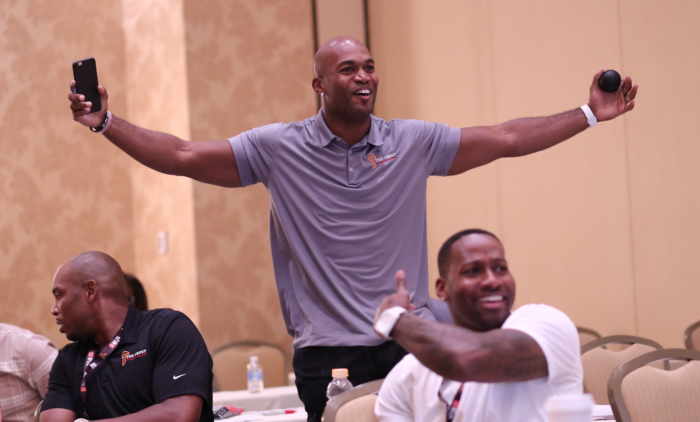
Bradie James is a former linebacker who played ten seasons in the NFL with the Dallas Cowboys and Houston Texans.
James was a Trust Captain from 2015 until early 2020. He currently lives in Texas with his family.
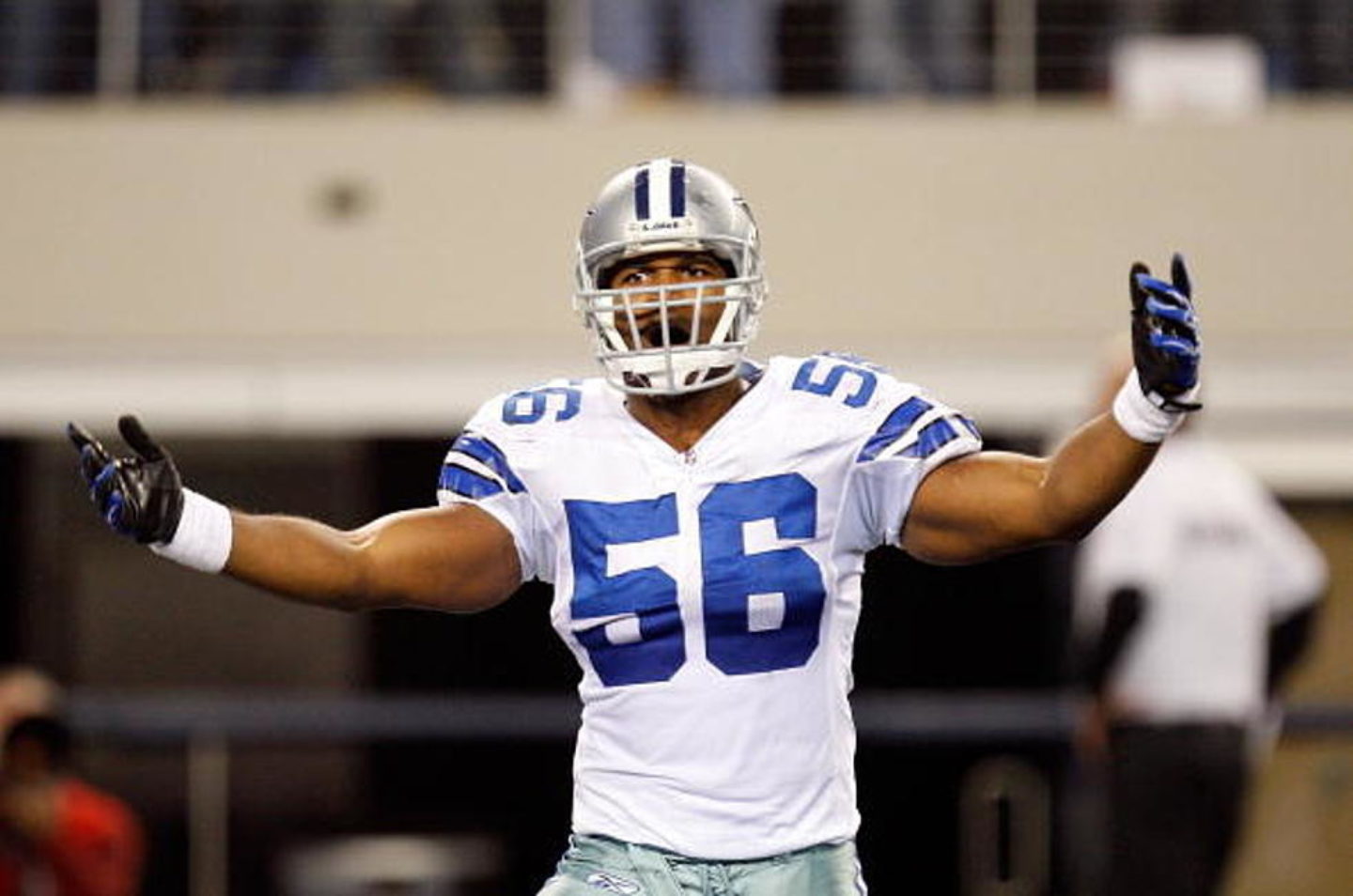
“ My transition was more different than difficult. ”
Leaving that, I had to create a different structure for myself. I ended up franchising Mooyah Burgers, Fries and Shakes while I was playing so that gave me an outlet during my transition. When I got done playing, I didn't want to have anything to do with the game. I was done all the way, so I threw myself into franchising. My transition was more different than difficult.
A lot of things! I never stop, I stay busy, and I stay structured. I founded the Bradie James Foundation which is in honor of my mom who had breast cancer.
I lost both of my parents right after high school, three months apart from each other. I made a vow I would do something and make an impact in breast cancer awareness. After my second year in the league, I felt like I had enough to start giving back, so I started the foundation.
“ I founded the Bradie James Foundation which is in honor of my mom who had breast cancer. ”
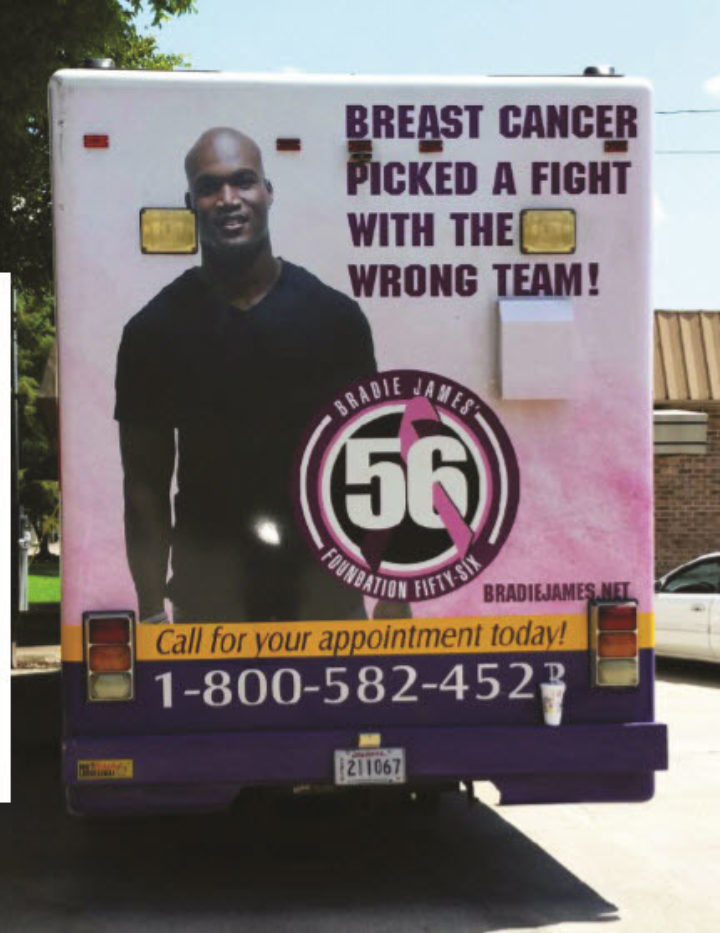
While I was in college, I didn't know anything about breast cancer. When my mom was diagnosed, I didn’t initially know. My family did not even tell me, because they wanted me to be focused. I went home to my dad and mom both being sick.
I went back to school and started doing research in the library at LSU. I dove right in and learned through her process early detection is key. It helps aid your fight, because if you can find out early, you have a better chance of fighting and conquering cancer.
Early detection was a huge reason for me starting the Bradie James Foundation. One of the ways to help with early detection is utilizing mobile mammograms. Early on in the foundation, we had to figure out who our audience was. Due to HIPAA laws and breast cancer being an invasive and personal battle, we had to figure out where we could make an impact. Early detection was it, so we partnered with several healthcare systems. We ended up purchasing the operations for a mobile unit so we could provide free mammogram screening. Our partnerships have continued to spread.
From there, we ended up building a resource center in Dallas. We have “Nurse Navigators,” so when people are diagnosed with breast cancer, they have a nurse to help them navigate through the process. This came about because when I found out my mom had breast cancer, I didn't know what to do. I wanted to put something in place for people like myself so when they find out a loved one is diagnosed with breast cancer they have a one-stop-shop for resources.
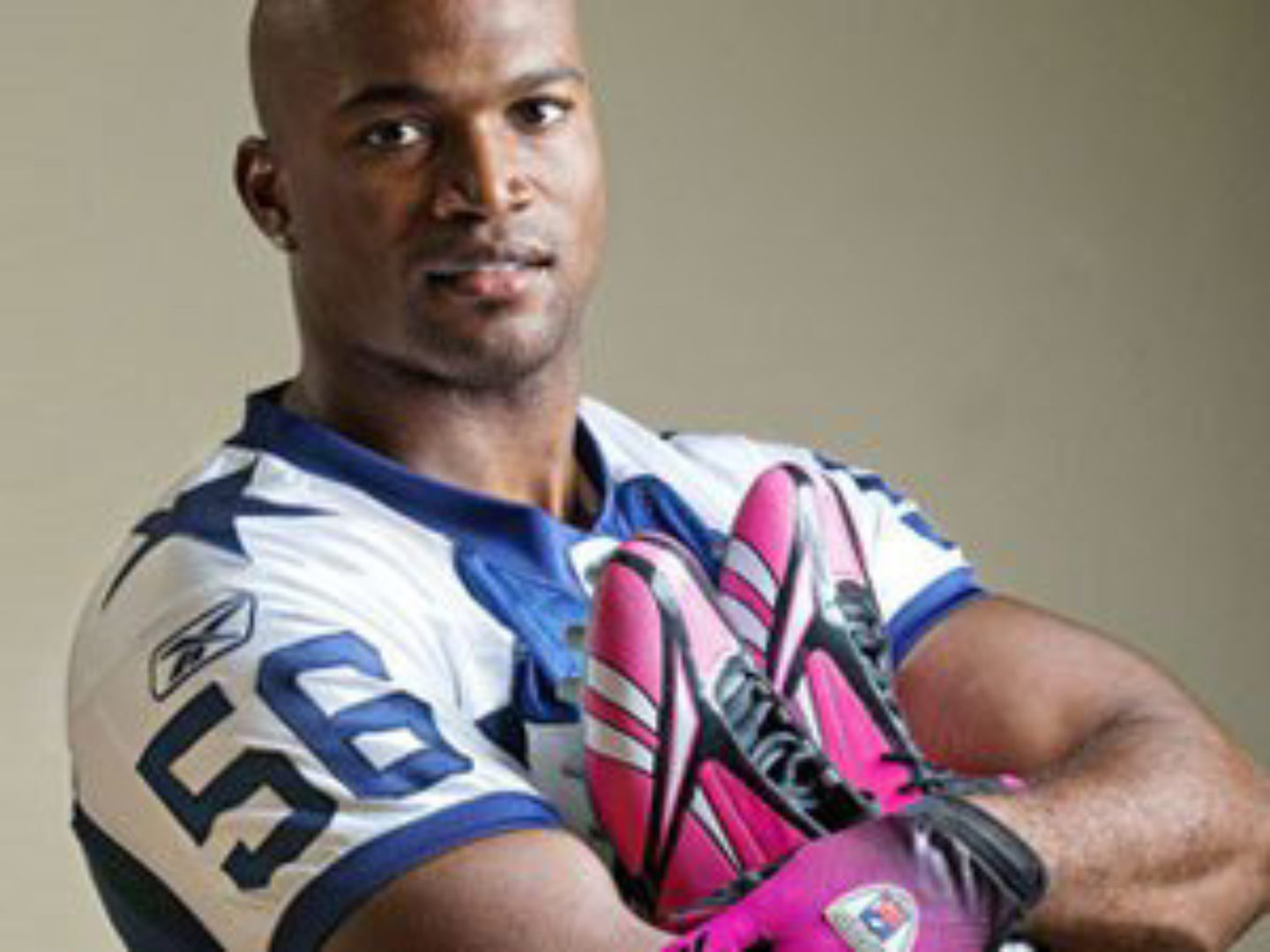
“ There’s a lot of parallel with former players and survivors, because it's a small percentage of the population which can relate to you. ”
Breast cancer affects families. Everyone is affected, and everyone comes together to rally around the person affected. The resource center has all the resources a family might need. I wanted to help create a place where someone can create an action plan. It’s not foolproof, but it gives you a starting point and connects you with other people who have gone through the same thing. Indirectly, the resource center ended up creating a sorority for the women. There’s a lot of parallel with former players and survivors, because it's a small percentage of the population which can relate to you.
“ Personally, I needed to create a challenge, and part of that challenge was doing something I had never done before. ”
For me, it was doing something and creating a different challenge for myself. I wanted to be more than just a football player, so I thought about football as an experience and not a career. When I turned 30, they told me I was an old man [in terms of playing.] I thought, ‘I am a young man, I'm younger than half of the people telling me I'm old. Personally, I needed to create a challenge, and part of that challenge was doing something I had never done before. Franchising was a model system, and it had structure. I was willing to jump into that. I also wanted to be a family man. I wanted to be at home and help raise my kids. I find both of those things rewarding.
“ I wanted to be more than just a football player, so I thought about football as an experience and not a career. ”
Stay in community and reach out. I think the hardest part for most guys before transitioning is they don't know when they are done. It's not really celebrated to walk away from the game.
One of the things you have to do is stay in community with other guys like yourself. You don't realize you are part of that 1% for a reason. When you get done, not a lot of people relate to you, and you don't relate to a lot of people. It's difficult because you are thrust into the real world and the real world is something you haven’t been a part of. It’s all new.
“ It's not really celebrated to walk away from the game. ”
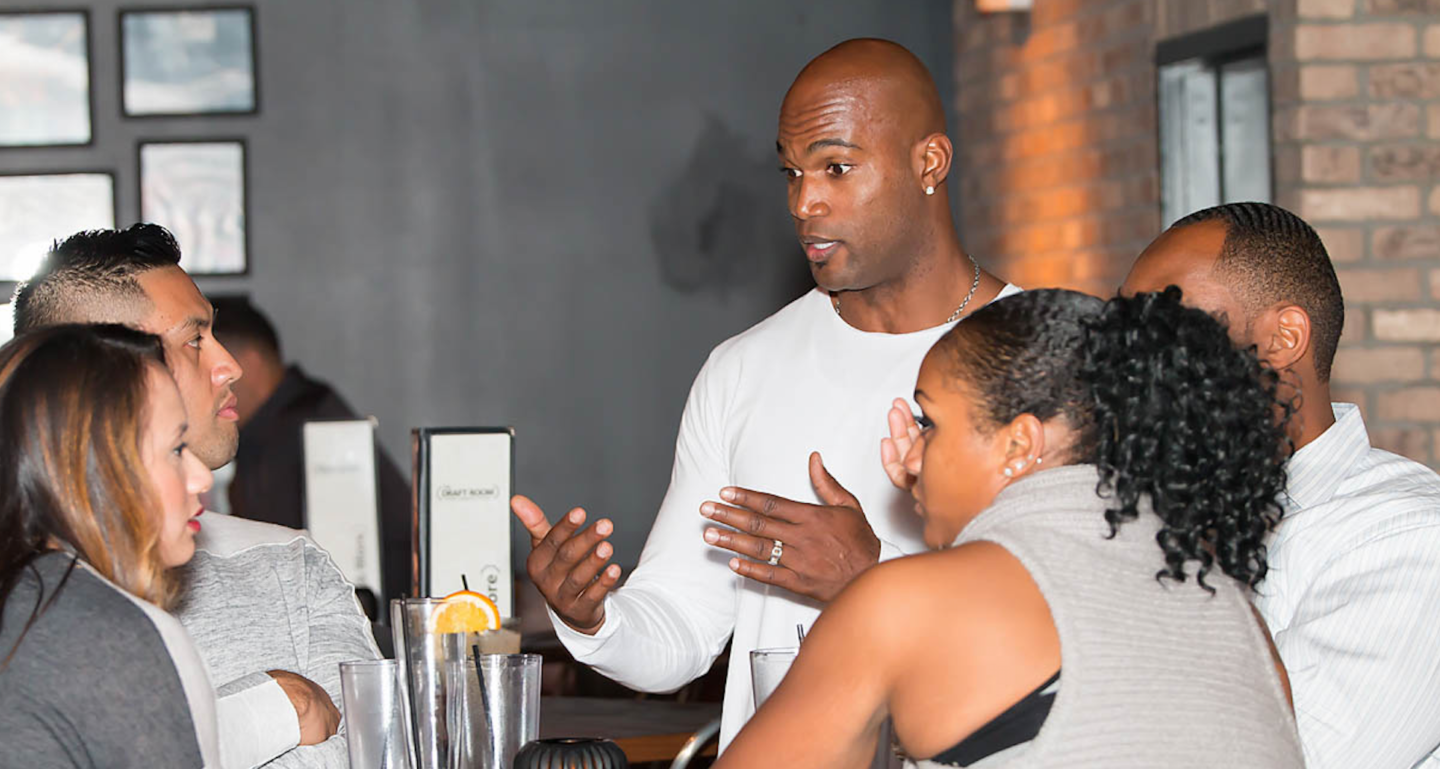
The Trust Captain's Events were designed to get guys out and about. There’s such a disconnect when guys finish, so Captain's Events are a way to keep guys engaged. When you are done with football, you are beat up, your confidence is low, etc.
The thing to do is connect with people. At a Captain's Event, that's what we are trying to help you do. During most transitions, your house is a dark place. You almost become an actor there. You’re not being active and not getting out. That could create depression.
These events were created to get guys out and connected with the brotherhood. When you get around other people you played against or played with, it's a fraternity. It becomes a safe place. While we’re playing, we don't really get to know each other. On this side I ended up getting to know a lot of my colleagues and guys I played against. We end up helping each other.
I don’t know if I have one proud moment, but I am proud of my overall body of work. I am proud I played for ten years and did not come out too badly injured, damaged, etc.
There are several things but becoming an entrepreneur sticks out. I can say I am definitely more than a football player. I wanted that and it’s what my parents instilled in me. Football is just an extracurricular activity. It was a part of me, but I never wanted to get caught up in the identity of football. I think that's worked well for me.
“ I can say I am definitely more than a football player. ”
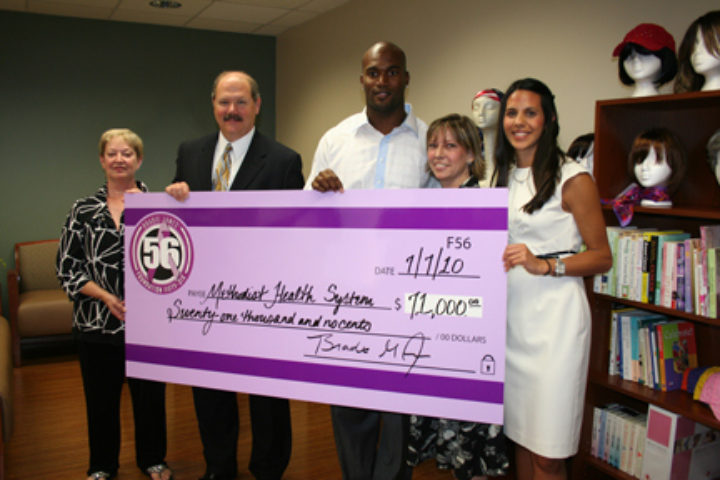
The Trust is here to support you.
Ready to learn how?
Related Spotlights
Kenneth Coffey
Kenneth Coffey discusses how football became his goal and vehicle to success.